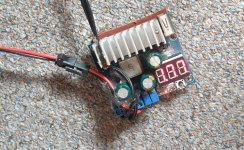trevskoda
Full Member
- Posts
- 45,012
- Likes
- 67,954
You dont use an inverter for that, for £14 pounds you can get a 12v to 19v laptop charger, and also cheap usb sockets for phones.Yes, can't see the need for an inverter earth, so unless someone can explain the science behind having it earthed I won't bother.
Same as what? Battery negative vehicle body?
It's1000W and will be used for laptop and camera battery charging, for which the inverter is more than enough but I have gone through a number of smaller / cheaper inverters so I have gone a bit over-the-top for this one.
An inverter will eat battery and not required for what you want, save your money and you batteries.

